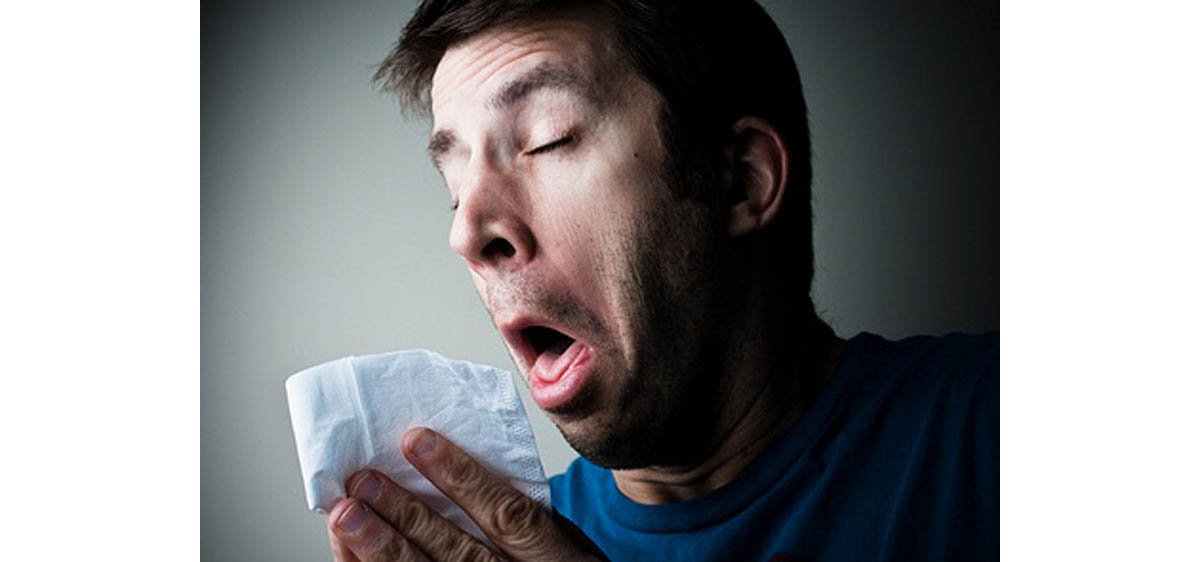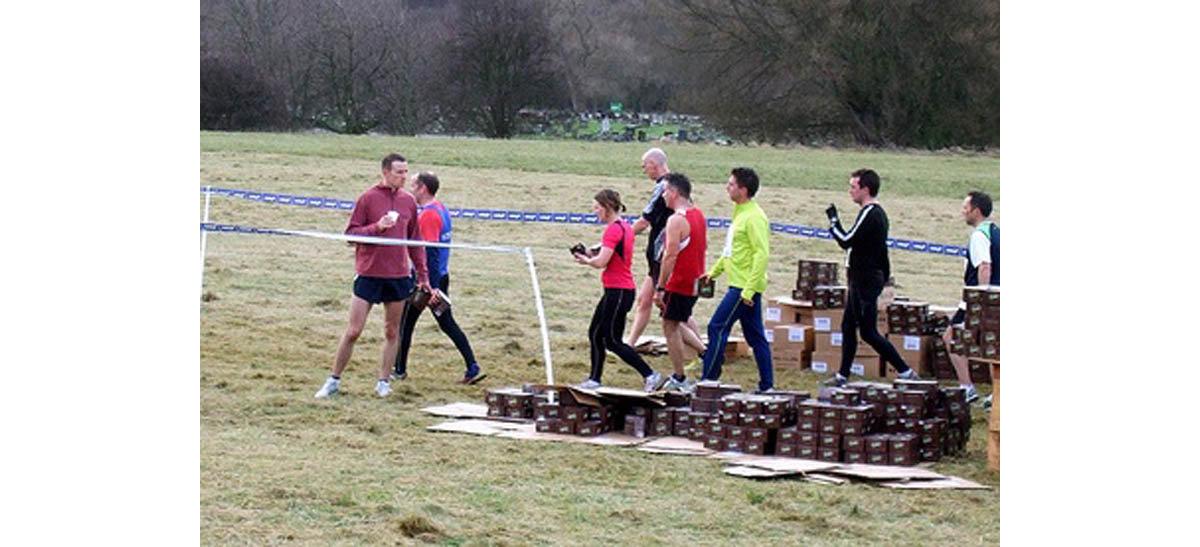Exercising with a Cold When It's Cold
While it's possible to catch colds caused by different strains of the virus in the tropics any time of year, most of us live in parts of the world where people catch colds when the weather is cold. The combination of coming down with a cold and working out in cold air can cause some people major problems.
About 10% of the general population in most of Europe and North America experiences exercise-induced bronchospasm. Working out and breathing hard can trigger constriction of the airways leading to breathlessness or a full-blown asthmatic attack. If you add to these symptoms the congestion and nasal constriction caused by a cold, exercise-induced bronchospasm can be much more severe. If you are prone to asthma and you catch a cold, don't work out in cold air—or just take a few days away from your workout schedule.
Exercising with a Cold During Pollen Season
Even more people tend to get asthma during their local pollen season. In places like Japan and Texas, pollen season occurs in the dead of winter, several weeks after first frost, when cedar trees bloom. In other locations, pollen season comes at the very end of colds season, but while H1N1 is still going around. If you are prone to pollen allergies and you catch a cold during your pollen season, do light workouts no workouts at all until you get your colds symptoms under control. It's also important to avoid fumes and drafts until you get over your cold.Exercising When You Have a Fever with a Cold
Do we really have to tell you it's not a good idea to go to the gym when you have both a cold and a fever? If you do work out, you may not be doing your muscles any good. The nutrients your muscles must sequester from the bloodstream to remodel and reshape themselves to grow harder and stronger after exercise may already be in use to fight your infection. If that's the case, then if you do exercise, you'll just be breaking down muscle fibers without building them back up.READ How much exercise is too much?
There are times when even people who are usually in great physical condition need to see a doctor about a cold.
- When chest congestion makes breathing at rest labored or even just uncomfortable.
- When a cold is followed by a lightheaded feeling.
- When a cold causes dizziness or loss of balance.
- When it's difficult to catch your breath.
- When there is excessive coughing or sneezing.
- When there is a feeling of pressure on the chest or on the arms.
But there are also times it's OK to exercise when you have a cold, if you follow some basic commonsense rules.
When Working Out with a Cold Is a Good Idea
Let's suppose you don't have asthma or allergies. You don't have a fever. You can breathe comfortably, you aren't coughing a lot or wheezing at all, you don't feel lightheaded or woozy, and you aren't having problems with balance. Is it then OK to workout?The answer is in the affirmative, and there is clinical research to back up the suggestion.

About 15 years ago, an athletic trainer at Ball State University in Indiana named Thomas Weidner wondered what he should tell athletes about exercise when they got colds. Athletes on college football and basketball teams are especially loathe to let themselves get out of shape when their teams are counting on them. But Weidner worried that working out too hard at the wrong time might actually decrease athletic performance.
Weidner asked Ball State exercise physiologist Leonard Kaminsky to organize a study involving 21 women and 24 men aged 19 to 28 who were at varying levels of fitness. These volunteers agreed to be deliberately infected with a rhinovirus, one of the kinds of viruses that causes about 1/3 of all cases of common cold. Another 10 men and women who did not receive virus served as controls.
The rhinovirus was dropped into the noses of the 45 volunteers, and all 45 got head colds. Two days later, when their symptoms were at their worst, the volunteers were asked to come to the gym and work out on treadmills at moderate to intense speeds.
To Kaminsky's surprise, catching a cold seemed to have no effect on the volunteers' exercise capacity or lung performance. They breathed just as well and exercised just as hard when they had colds as when they didn't. The difference was that the volunteers who had head colds reported feeling more fatigued after exercise than the volunteers who did not.
Dr. Kaminsky then devised an experiment to determine whether exercise had any effect on how fast exercisers get over colds. This time he recruited 34 volunteers to be given the rhinovirus and 16 volunteers to serve as controls. He asked volunteers in the exercise group to run on treadmills for 40 minutes every other day at 70% of their maximum heart rate.
READ How to get rid of the common cold quickly?
The volunteers were queried every 12 hours about how much exercise they had gotten other than the treadmill workouts and how they felt. The researchers weighed discarded tissues to estimate the volume of mucus produced by the colds.
Dr. Kaminsky and his colleagues found that exercise had no effect on the objective symptoms of having a cold, although some of the exercisers reported that working out made them feel better. Athletes at Ball State are now advised to continue their workouts when they come down with colds, with gym staff taking precautions to ensure that equipment stays clean so colds and flu are not passed from one student to another.
The kind of colds that don't effect exercise, however, are head colds with runny nose or congestion. It is still not a good idea to work out when a cold causes chest congestion, and no one should work out when breathing is labored or the sense of balance is compromised. As long as you are listening to your body, it's OK to work out with a chest cold. But if you are working out when you have a chest cold, are you really listening to your body?
- Weidner TG, Cranston T, Schurr T, Kaminsky LA. The effect of exercise training on the severity and duration of a viral upper respiratory illness. Med Sci Sports Exerc. 1998 Nov
- 30(11):1578-83.
- Weidner TG, Anderson BN, Kaminsky LA, Dick EC, Schurr T. Effect of a rhinovirus-caused upper respiratory illness on pulmonary function test and exercise responses. Med Sci Sports Exerc. 1997 May
- 29(5):604-9.
- Photo courtesy of foshydog on Flickr: www.flickr.com/photos/foshydog/3208368220
- Photo courtesy of purplespace on Flickr: www.flickr.com/photos/purplespace/5254613110

